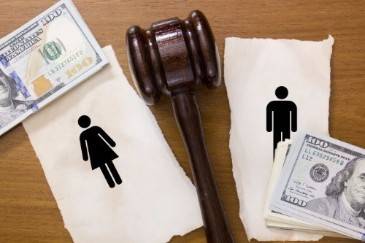 New York is among the 41 states that incorporate equitable distribution in divorce cases. Equitable distribution refers to the specific way in a divorce case in which property and finances are divided between the two former spouses. A key takeaway is that equitable distribution is not always the same thing as equal distribution; instead of a 50/50 split of marital assets, a judge or mediator will divide money, personal effects, and real estate according to each spouse’s particular circumstances. Time spent raising children, contributions to marital property, educational support, and earning ability are factors that can play a major role in determining which spouse receives what assets. Unless both spouses signed a prenuptial agreement that explicitly covered the distribution of marital property in the event of divorce, the court will have to decide how to divide assets. Though this distribution will likely be fair, it may not be equal.
New York is among the 41 states that incorporate equitable distribution in divorce cases. Equitable distribution refers to the specific way in a divorce case in which property and finances are divided between the two former spouses. A key takeaway is that equitable distribution is not always the same thing as equal distribution; instead of a 50/50 split of marital assets, a judge or mediator will divide money, personal effects, and real estate according to each spouse’s particular circumstances. Time spent raising children, contributions to marital property, educational support, and earning ability are factors that can play a major role in determining which spouse receives what assets. Unless both spouses signed a prenuptial agreement that explicitly covered the distribution of marital property in the event of divorce, the court will have to decide how to divide assets. Though this distribution will likely be fair, it may not be equal.
Equitable Distribution in Divorce Cases
Grounds for divorce and equitable distribution are merely the tip of the iceberg where divorce is concerned. Once you have decided to file for divorce, you will have to consider such issues as alimony (also known as spousal support), child support, pre-marriage surnames, and child custody. You should trust that your divorce attorney will be able to guide you through every last element of New York divorce law.
Contact Our Office Today
Jamestown divorce lawyer Scott Humble has over 30 years of experience supporting clients at each stage of their divorce cases, and it is our pledge to help you achieve the outcome that you desire. Contact our office today to set up an initial consultation.

cialis online without prescription Lipitor Cephalexin